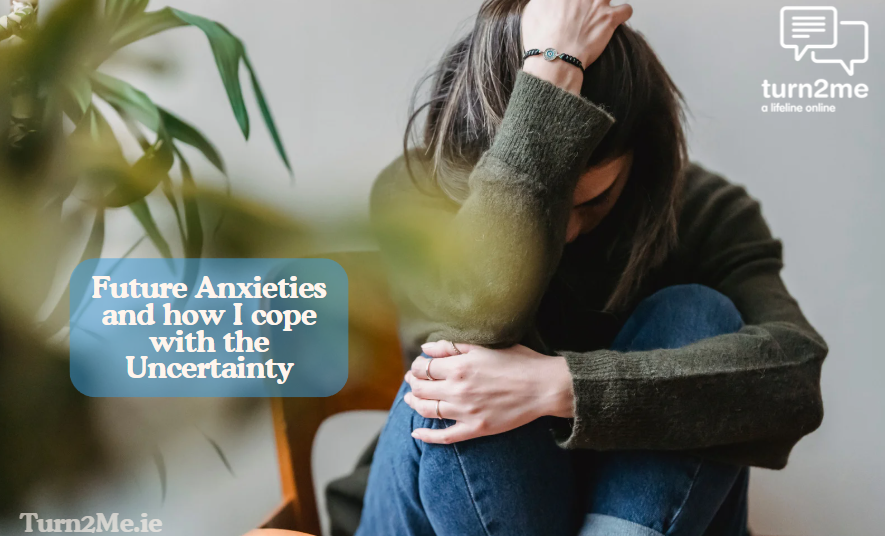The future is something I think a lot about. It holds many possibilities and opportunities for growth, but it also holds fear and anxiety. I know this anxiety is very common; however, sometimes it feels like the pressure of what’s next lies solely on my shoulders. It can be overwhelming. Coping with these feelings can be difficult and uncomfortable, but from time to time, I just need to remind myself that I am doing the best I can—and that’s enough.
I feel the pressure from society and the people around me to find my path. I’ve had a lot of conversations with my friends recently about the future, and even talking about it can raise my heart rate. I know my friends are coming from a place of love and interest, but sometimes that’s just not helpful. As a way to cope with this, my strategy is to over-research and find out everything I can—or to daze myself with options. I feel a fear rising inside of me, wondering “Is this the right path?” and “What if it all goes wrong?” It feels as if finding the “right” path will hold all the magic answers. But the reality is, I don’t know what the future holds.
I started to look into why we think about the future and why, for me, future thinking often spirals into something stressful. Future thinking is a way to mentally time-travel to a desired place in our lives. We can see what we want and how this makes us feel. These future thoughts can help us gain clarity, prepare, and have something to aspire to. Positive future thought can be helpful, as it allows us to reconnect with our long-term goals and dreams. This, in turn, can positively impact our mental well-being.
The opposite of future thought is anxiety-driven worry. Anxiety-driven worries tend to be highly cautious and escalate into negative thoughts about the future. This tends to happen when our brain’s threat system is hypersensitive, more alert, and focused on any perceived dangers. It is a prepared state that often gets overgeneralised to protect us. This anxiety-driven worry can lead to sleepless nights or high levels of stress.
I think when it gets to the point of sleepless nights, our bodies and minds are overworking. This can be a sign to take a step back and slow down. But that’s a lot easier said than done. Sometimes, slowing down can cause even more anxiety, especially if there’s a looming deadline. But when we talk about slowing down, it’s more about relaxing our minds and grounding ourselves in the present. It’s about asking ourselves, “What can I do now, in this moment?”
I still struggle with anxieties about the future, and they’ll probably stay with me for a while. But there are a few things I’ve found helpful…
- Draw a circle. Inside the circle, write all the things you have influence over right now. Outside the circle, write the things you don’t. This “circle of control” really helped calm me and allowed me to take a step back and focus on the steps I can take.
- Try to be kind to yourself. If a friend were going through this, what would you say to support them? Sometimes it’s very easy to hold ourselves to high standards, and we just need that gentle reminder to be kind to ourselves and slow things down.
- Set a small, attainable challenge. When I feel anxious about the future, it often feels like I can’t do anything. For me, I like to complete a small challenge—like going for a short run even if it’s raining, or doing a sudoku puzzle. This reminds me that, despite everything going on, I am more capable than I think. Just be aware that the challenge should be small and realistic within a short timeframe. And if it doesn’t get done, that’s okay—it’s a challenge for when we feel a little more able.
- Do a bit of self-care. For me, a bath goes a looooonnnngggg way. Something about the hot water makes me feel like I’m getting a hug. For you, it may be something different, but I promise that putting a little care into yourself in times of stress and anxiety can make a difference.
Who knows what the future holds? I know that for me, it’s a continuous challenge to counteract my anxiety-driven worries. I hope that one day, I’ll feel more at ease—but for now, I’m doing the best I can, and that is enough.
